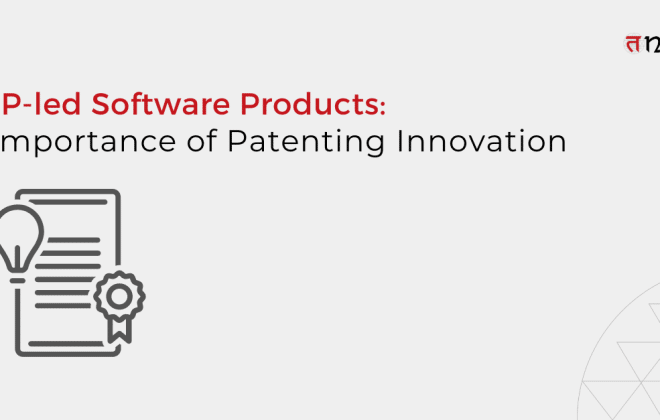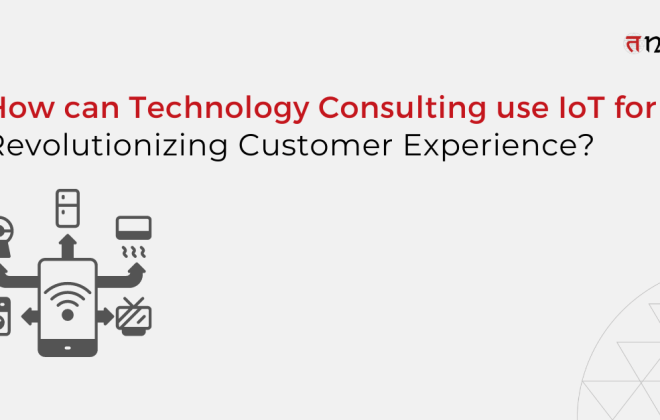
Breakthrough Solutions for Global Challenges through IP
The impact of intellectual property (IP) on innovation and economies is vast, affecting sectors worldwide. IP strategy, pivotal in accelerating breakthrough solutions and incentivizing innovation, drives collaboration and protects global innovation ecosystems. Companies like Tntra, specializing in IP-led software engineering, aid in securing patents and developing unique software products. Their IP practice integrates patents with business goals, offering expertise in software patent assistance and IP-led product engineering, enabling businesses to protect innovations and navigate the evolving tech landscape.
Apple’s IP strategy highlights its dedication to innovation-safeguarding and is based on Steve Jobs’ pre-launch iPhone protection campaign. Former Apple attorney Nancy Heinen reiterated Steve Jobs’ mantra of defensively patenting every idea the company came up with.
Their enormous IP collection—nearly 1,000 U.S. trademarks and soaring worldwide patents in the past 20 years—reflects their attention to detail. Patents protect technological innovations, and design rights preserve the distinctive look of the Apple device. Apple’s legal staff has a unique blend of legal and technical expertise, and they are skilled at protecting products’ unique characteristics.
This two-pronged strategy presents difficulties for rivals looking to imitate Apple. Although they can mimic technology, it is difficult to replicate the subtle design elements of Apple’s breakthrough solutions. Rivals’ imitation is limited and cannot take on essential details. As a result, Apple strengthens its position in the market and may charge higher costs for comparable electronic products.
Apple’s intellectual property strategy prevents replication and foils attempt by rivals to imitate it. Apple safeguards innovations and solidifies market leadership by fusing unique designs and cutting-edge technology under extensive intellectual property protection. This approach, which upholds Apple’s leadership in the market, not only protects against copying but also sets premium pricing in the face of worldwide challenges.
Source: kTMINE and Innovation Origins
Global Impact of Intellectual Property on Innovation and Economic Dynamics
The US provides 22% of the world’s technological discoveries, and its IP-intensive industries account for 38.2% of GDP and 27.7% of US employment. IP accounts for 70% of the value of listed firms, while workers in the copyright industry earn 38% more than the average. In the meantime, 3.6% more patents were filed worldwide that year. In an IP environment, the US leads with a score of 95.48 for 2023, followed by the UK and France. In 2021, trademark sales increased in the US and Indian health sectors.
From 2018 to 2020, China, South Korea, and the US-led software patent applications, while Japan focused on electrical machinery and Germany on transport. According to research, nine of the top 20 IP offices in 2021 were located in low- or middle-income nations. These countries included Mexico (with 199,389 files), Indonesia (with 127,142), Vietnam (with 113,079), and Argentina (with 85,844). Business is greatly impacted by intellectual property; software and other sector patents drive innovation, economic growth, and worker wages worldwide.
Intellectual Property’s Role in Fostering Innovation
Breakthrough solutions for global challenges via Intellectual Property (IP) encompass innovative strides safeguarded by IP rights. These solutions address important global technology, healthcare, and climate change concerns. Copyrights for artistic works, trade secrets for company information, patents for inventions, and trademarks for branding are examples of intellectual property (IP) that protects innovators and artists.
Securing these rights encourages innovative solutions by providing incentives for research. Through tackling urgent global challenges, intellectual property (IP) encourages creativity, attracts investment, and generates significant solutions in technology, healthcare, and climate change, promoting advancement in various fields.
- IP protection incentivizes innovation: IP protection fosters innovation by giving creators the exclusive right to their works, which motivates them to devote time and money to creating novel and cutting-edge goods and services. To push the limits of knowledge and develop ground-breaking solutions, inventors are driven by the possibility of financial rewards and market exclusivity.
- IP fosters collaboration and knowledge sharing: IP protection decreases fears of patent theft, which promotes cooperation and knowledge sharing within a software product engineering company. Because of their flexibility, these businesses can pool their resources and knowledge, which encourages innovation and the co-creation of cutting-edge solutions.
- IP promotes commercialization and market access: With IP protection, businesses may launch innovations without worrying about unapproved imitators stealing their ideas. The process of commercialization aids in distributing the advantages of innovation to both customers and society at large.
- IP generates revenue for reinvestment: A positive feedback loop of innovation and economic expansion can be created by reinvesting the profits from IP-protected goods and services into additional research and development. New and even more innovative solutions are fueled by this investment.
- IP protects global innovation ecosystems: An IP consultant can ensure that global innovators have fair access to the rights and protections critical to success. Humanity benefits from this fostering of a global innovation ecosystem.
Conclusion: IP-Led Software Engineering By Tntra
Securing intellectual property profoundly impacts innovation and economic dynamics across sectors. Its crucial role in fostering breakthrough solutions, incentivizing innovation, encouraging collaboration, promoting commercialization, and protecting global innovation ecosystems makes it pivotal for IP companies navigating the evolving innovation landscape. Many technology consulting services, such as Tntra, offer specialist IP-led software product engineering solutions to help businesses and individuals protect their innovations.
Through Tntra’s IP practice, businesses and startups can get intellectual property ownership of software solutions and products that accelerate digital transformation and increase company value.
To help customers integrate their IP strategy with the broader business and technological objectives, Tntra’s IP Practice helps them apply the “Why and How of Patents” to their particular scenario. It will also help them build an approach and engineering note that could result in a patent application or application.
- IP-Led Product Engineering
- Tntra leverages unique FinTech, Supply Chain, New Economy, IoT, and HealthTech methodologies to create innovative solutions. We provide the resources, skills, and knowledge to build IP-led products.
- Tntra leverages unique FinTech, Supply Chain, New Economy, IoT, and HealthTech methodologies to create innovative solutions. We provide the resources, skills, and knowledge to build IP-led products.
- Software Patent Assistance
- Tntra conducts technical document reviews, source code reviews, and research to assess the idea’s validity. We connect you with the right people to get the software patent and help create a unique software product.
Benefit from Tntra’s IP-led product engineering skills and expert assistance for software patenting to protect your innovation.
Contact us Now!




